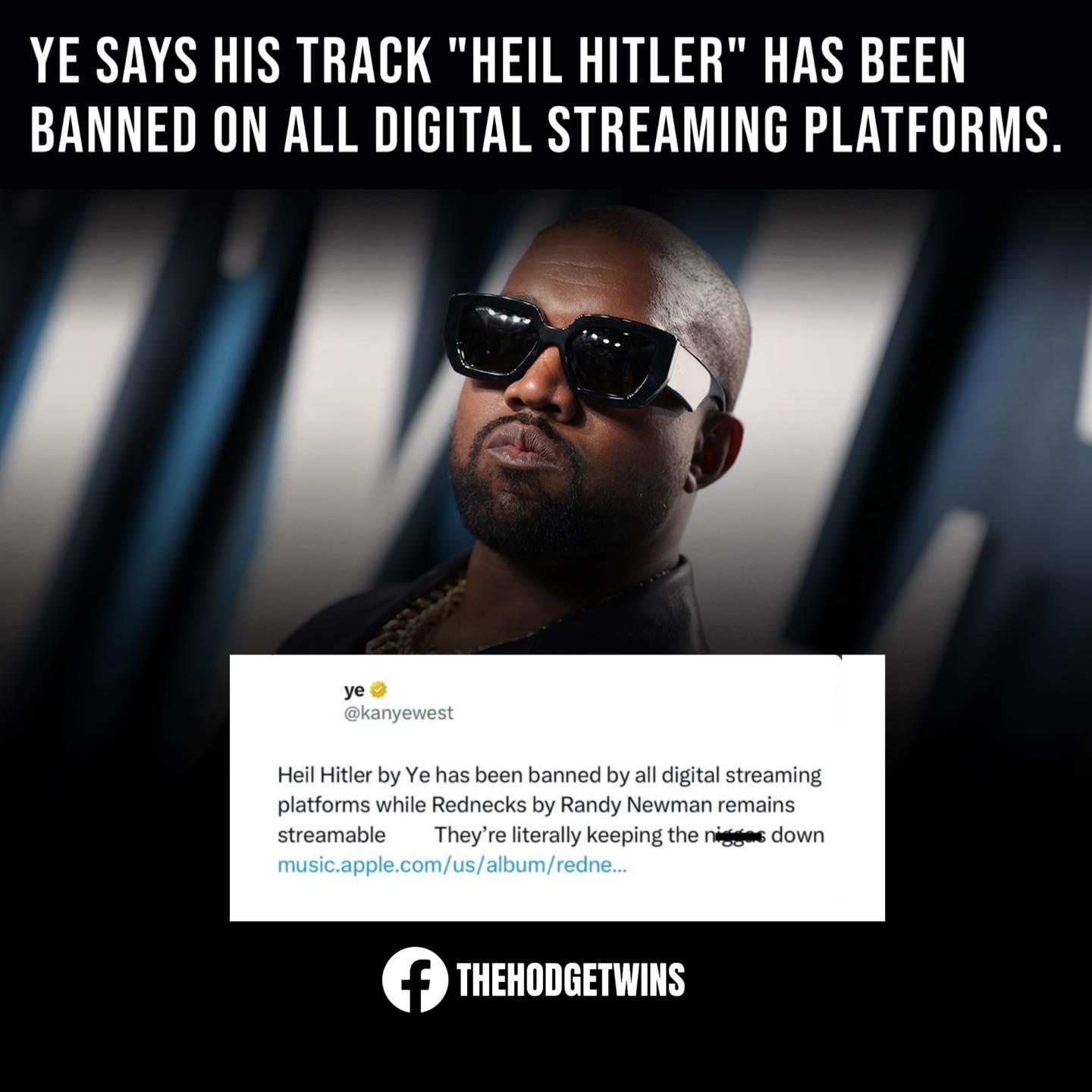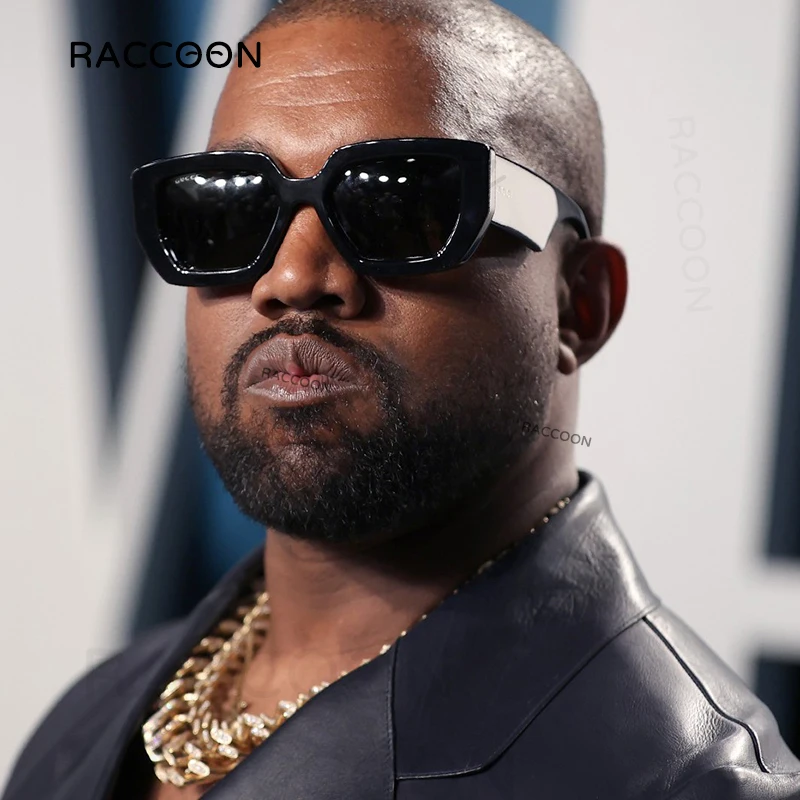In a fresh wave of controversy, Ye — the artist formerly known as Kanye West — has claimed that his latest track titled “Heil Hitler” has been banned across all digital streaming platforms. The statement, made via Ye’s verified social media account, has sparked immediate backlash, debate, and confusion among fans, industry observers, and critics alike.

Posting from his account, Ye wrote: “Heil Hitler by Ye has been banned by all digital streaming platforms while Rednecks by Randy Newman remains streamable. They’re literally keeping the niggas down.” The post has since been widely circulated and has reignited long-standing concerns about Ye’s public rhetoric, his relationship with streaming platforms, and his controversial use of historically inflammatory language and imagery.
As of the time of this writing, Heil Hitler does not appear on Spotify, Apple Music, Tidal, YouTube Music, or any other major digital streaming platform. While no official statement has yet been issued by the platforms named, industry sources suggest that the track may have been removed or rejected for violating content policies that restrict hate speech or material that promotes or glorifies violent ideologies.
Ye has a long history of provocative releases and statements, but this latest move appears to have crossed a line for many in the public and private sectors alike. While some of his fans have defended his right to free artistic expression, others, including civil rights organizations and Jewish advocacy groups, have condemned the song’s title and alleged messaging as dangerous and deeply offensive.
The Anti-Defamation League, in a brief comment to media outlets, stated that using phrases associated with Adolf Hitler and the Nazi regime as part of commercial music “is not only appalling but risks normalizing symbols and slogans of hate.” The organization added that platforms have a responsibility to uphold basic standards of decency and historical accountability.
Ye’s post also referenced Rednecks, a satirical 1974 track by Randy Newman that uses irony to expose racism and hypocrisy in American society. Ye appeared to cite the song to question what he views as a double standard in the enforcement of content guidelines. However, critics have pointed out that Rednecks was clearly framed as a critique of racism, while Ye’s song title alone evokes unambiguous associations with fascism and genocide.
At the core of the debate is an ongoing tension between freedom of expression and corporate responsibility in the age of streaming media. Artists today are not only creators but also public figures whose messages can reach global audiences instantly. Platforms, on the other hand, are increasingly being held accountable for the kind of content they host and amplify.
This isn’t the first time Ye has faced backlash for his statements. His past remarks praising Hitler and making antisemitic claims have led to severed brand deals, widespread criticism, and removal from several social and commercial platforms. Despite these consequences, Ye continues to position himself as a provocateur and martyr for what he describes as free speech and artistic truth.
Reactions from the music industry have been mixed. While some artists and influencers have remained silent, others have openly criticized Ye’s latest move as reckless and harmful. A few have also expressed concern that the focus on controversy is overshadowing important conversations about censorship, race, and corporate power.

Meanwhile, Ye has shown no indication of stepping back from the controversy. His public persona in recent years has increasingly centered around defiance, isolation from mainstream media, and a belief that he is being systematically silenced.
Whether Heil Hitler will be reinstated, edited, or released through alternative platforms remains unclear. What is certain is that Ye’s latest declaration has once again placed him at the center of a cultural firestorm—one that raises difficult questions about art, ethics, and the limits of expression in a digitally connected world.






